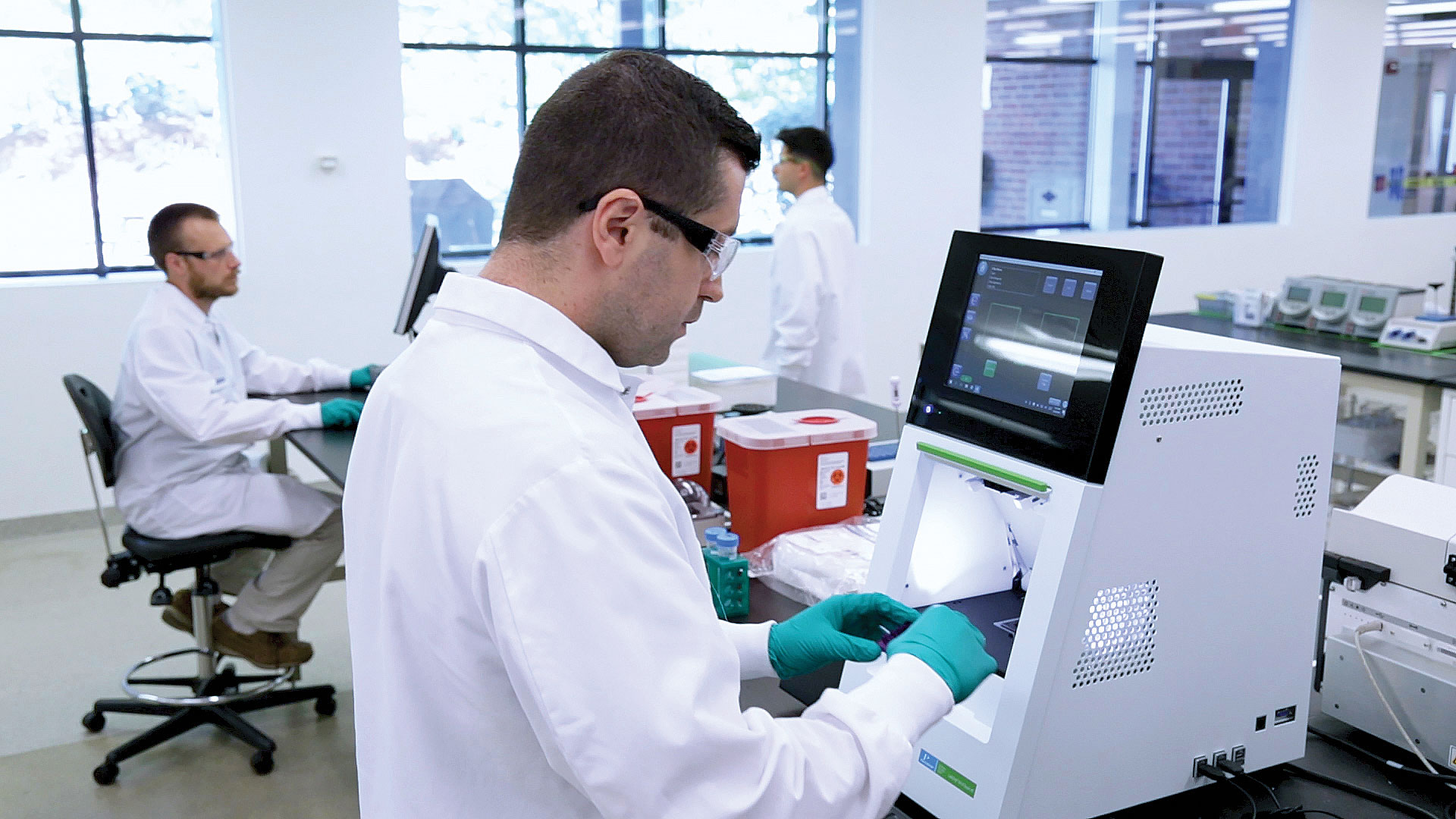The biopharmaceutical industry is the fastest-growing sector in healthcare. Contract manufacturing organizations (CMOs) and contract development and manufacturing organizations (CDMOs) were valued at $150.66 billion in 2019 and are expected to reach $246.24 billion by 2025. It is through expanding the production capacity, meeting market demand, breaking down barriers-to-entry, specializing in competitive services, and promoting intra-market collaboration that contract manufacturing organizations lead the biopharma industry to thrive. Read more about these five ways that contract manufacturing organizations optimize the biopharma industry.
- Increased Production Capacity
Contract manufacturing organizations help biopharmaceutical companies increase their production capacity. By creating agreements with another organization to utilize their manufacturing plants to research and develop a potential new treatment, biopharmaceutical companies efficiently optimize their business operations. This scalability technique can also help the major company focus on drug discovery and drug marketing, while confidently knowing that their ideas are researched and produced to the best of the contract manufacturing organization’s abilities.
An example of a contract manufacturing organization frequently relied on to increase a biopharmaceutical company’s production capacity is Samsung Biologics. Founded in 2011, Samsung Biologics advertises their organization as a “true partner for your entire journey” that is “committed to operational excellence in cGMP manufacturing and quality assurance to delivering values to our clients.” A single manufacturing complex, such as their most recently built plant in Songdo, South Korea, are fully integrated to provide CDMO service offerings. Samsung Biologics generated $400 million in revenue at the end of last year and is expected to continue its growth through 2020.
- Meets Market Demand
The biopharma industry is growing at a robust rate for the past five years, with no signs of slowing down any time soon. In fact, biopharma is consistently the fastest-growing segment of the healthcare industry. These projections indicate an upcoming expansion of the contract manufacturing organization market. The pressure is on for contract manufacturing organizations to help the biopharma industry meet the growing demand for researching and developing the world’s most pressing public health issues.
Current statistics on anticipated five-year growth for the biopharmaceutical industry and its contract manufacturing organizations do not reflect expected changes in revenue from COVID-19. Thus, we can expect that contract manufacturing organizations’ ability to meet market demand will be greater than previously anticipated. Samsung Biologics is stepping up to meet this demand with the help of their third biologics manufacturing plant in Songdo, South Korea. On April 10th, Samsung Biologics announced alongside Vir Biotechnology Inc. manufacturing agreements that would contract Samsung to performs in large-scale manufacturing services for Vir’s SARS-CoV-2 monoclonal antibody (mAb). This research, which may provide life-saving treatment to COVID-19 patients, is valued at approximately $362 million. Manufacturing is scheduled to begin in early October, with potential commercial batches to be manufactured starting in 2021.
- Breaks Down Barriers-to-Entry
The costs associated with acquiring manufacturing capabilities often serve as a barrier-to-entry into the biopharmaceutical industry. With the help of contract manufacturing organizations, more at contributing to the fastest-growing segment of health care. By outsourcing production to companies whose responsibilities are specifically production-based, the contract manufacturing organization model successfully breaks down barriers-to-entry. We can expect that many of the project figures for revenue increases over the next decade indicate how CMOs and CDMOs encourage smaller companies to begin their business.
Samsung Biologics helps break down barriers-to-entry for their clients through commercial production. The market dynamics of increased competition in the biopharma industry means that drug developers must focus on considerable efforts to make their manufacturing as methodical and cost-effective as possible. Fortunately, Samsung Biologics achieves fast turnaround with economies of scale. This ensures that high-quality products make it to market on time.
- Specializes in Competitive Services
Contract manufacturing organizations offer specialization in competitive services. This allows biopharmaceutical companies to shift their priorities towards expanding their business promotion and pivot towards innovative new treatments. Samsung Biologics is a perfect example of how specializing in competitive services can grow a biopharmaceutical business. Of the 235 contract manufacturing organizations in the market, 40% advertise that they operate at all scales of operation. This 40% includes 3P Biopharmaceuticals, AbbVie Contract Manufacturing, AGC Biologics, BioXcellence®, Celltrion, FUJIFILM Diosynth Biotechnologies, Lonza, and Samsung Biologics.
Samsung Biologics takes their commitment to operating at all scales of operation a step further by advertising specialized services. These services include aseptic filling—a high-temperature, short-time thermal process that commercially sterilizes a product and fills the cooled sterile product into a pre-sterilized package in a sterile environment. This is a very delicate process and is crucial to ensuring the treatment’s safety and efficacy on patients. Samsung Biologics is proud to offer this critical step in the drug manufacturing process as a means of ensuring the overall patient and product safety. Their clinical and commercial fill/finish services ensure their clients that products are of the highest possible quality.
- Promotes Intra-Market Collaboration
Contract manufacturing organizations promote intra-market collaboration that enables the entire industry’s expansion and healthcare dependency. When a contract manufacturing organization gains a new client, they are agreeing to develop and create a new treatment. In exchange, the client is achieving economies of scale and expanding their network. This creates unique functions within the biopharmaceutical market, while also encouraging the circulation of new ideas, techniques, and research.
Intra-market collaboration is reflected within the geographic distribution of contract manufacturing organizations. Currently, North America holds the largest share of the market at 40%; its annual growth rate stands at around 6%. However, the Asia-Pacific markets are expected to grow at a doubled rate of 12%. This regional market, where Samsung Biologics is located, possesses inherent advantages such as, but not limited to, low labor costs, and fewer regulatory constraints. Since the business model of contract manufacturing organizations is to collaborate with other businesses within their sector, we can expect to see businesses learning from one another on how to best optimize their operations for the sake of bettering global health treatments.





